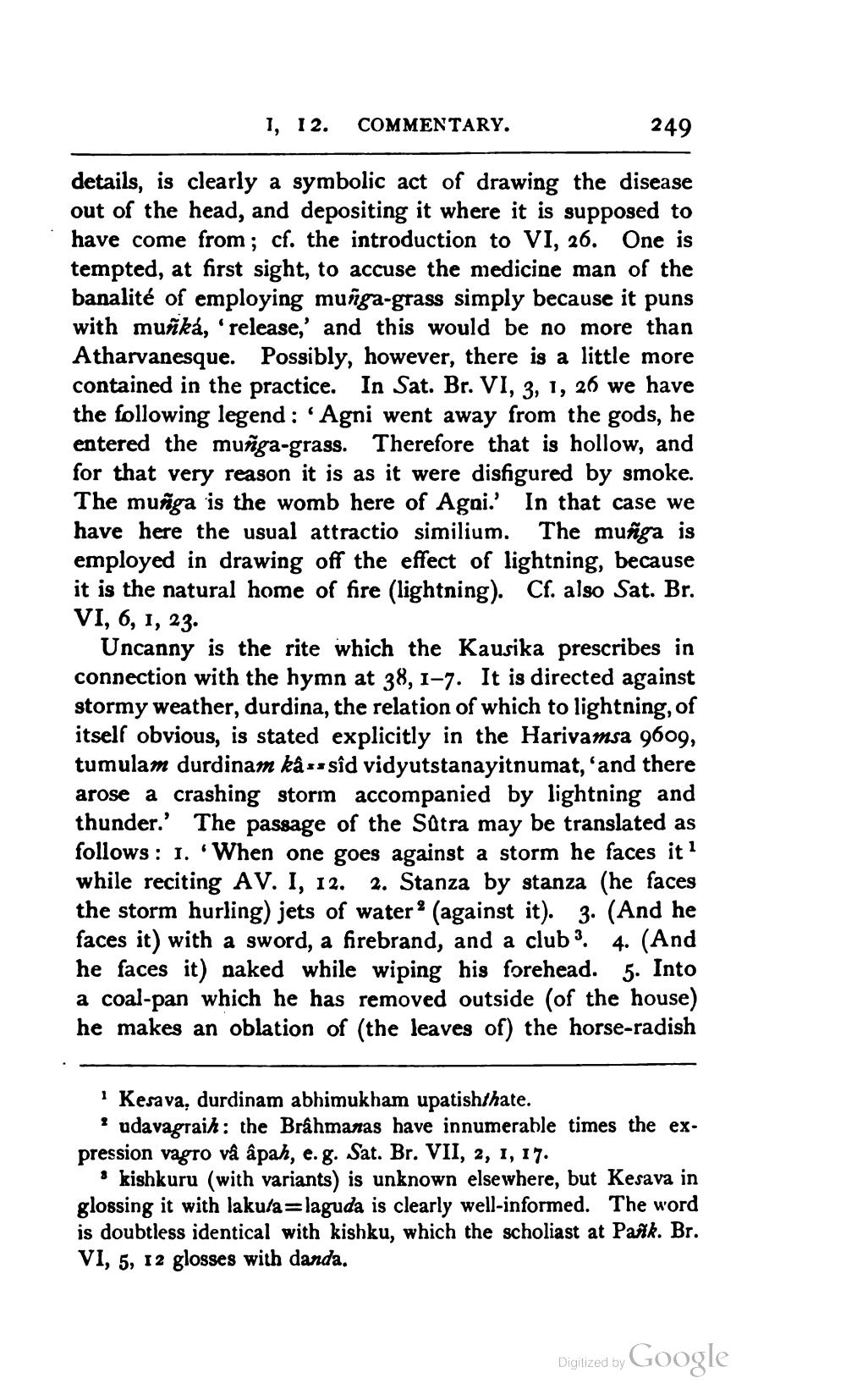________________
I, 12. COMMENTARY.
249
details, is clearly a symbolic act of drawing the disease out of the head, and depositing it where it is supposed to have come from; cf. the introduction to VI, 26. One is tempted, at first sight, to accuse the medicine man of the banalité of employing munga-grass simply because it puns with munká, 'release,' and this would be no more than Atharvanesque. Possibly, however, there is a little more contained in the practice. In Sat. Br. VI, 3, 1, 26 we have the following legend: 'Agni went away from the gods, he entered the munga-grass. Therefore that is hollow, and for that very reason it is as it were disfigured by smoke. The munga is the womb here of Agai.' In that case we have here the usual attractio similium. The munga is employed in drawing off the effect of lightning, because it is the natural home of fire (lightning). Cf. also Sat. Br. VI, 6, 1, 23.
Uncanny is the rite which the Kausika prescribes in connection with the hymn at 38, 1-7. It is directed against stormy weather, durdina, the relation of which to lightning, of itself obvious, is stated explicitly in the Harivamsa 9609, tumulam durdinam kâsîd vidyutstanayitnumat, 'and there arose a crashing storm accompanied by lightning and thunder.' The passage of the Sûtra may be translated as follows: 1. 'When one goes against a storm he faces it1 while reciting AV. I, 12. 2. Stanza by stanza (he faces the storm hurling) jets of water (against it). 3. (And he faces it) with a sword, a firebrand, and a club. 4. (And he faces it) naked while wiping his forehead. 5. Into a coal-pan which he has removed outside (of the house) he makes an oblation of (the leaves of) the horse-radish
1 Kesava, durdinam abhimukham upatish/hate.
udavagraih: the Brahmanas have innumerable times the expression vagro vâ âpah, e. g. Sat. Br. VII, 2, 1, 17.
* kishkuru (with variants) is unknown elsewhere, but Kesava in glossing it with laku/a-laguda is clearly well-informed. The word is doubtless identical with kishku, which the scholiast at Pank. Br. VI, 5, 12 glosses with danda.
Digitized by
Google




